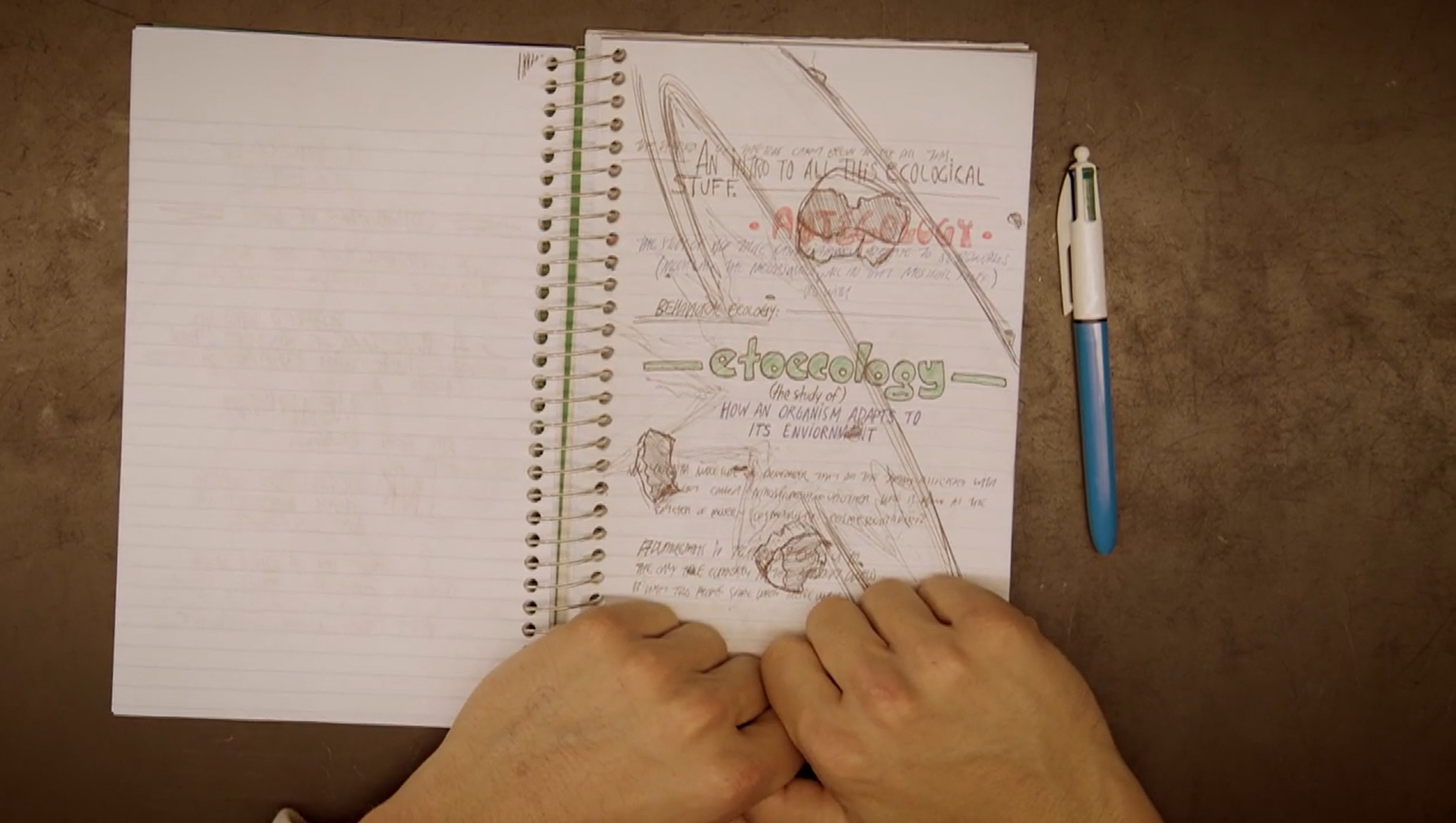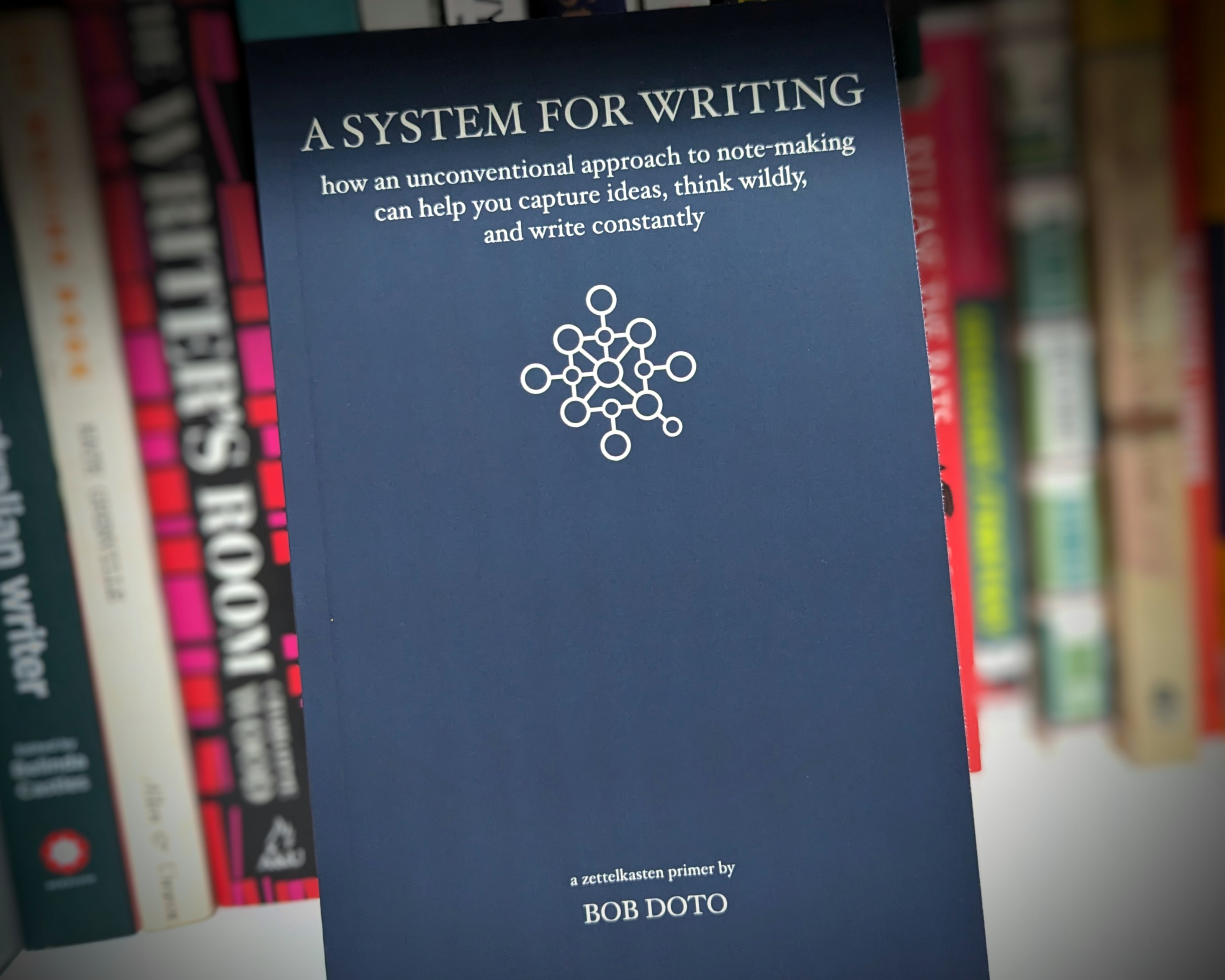article
- write atomic notes,
- write in Markdown syntax,
- link notes easily,
- re-combine notes by transclusion,
- easily search through all my notes without clutter; and
- export notes without stress.
Atomic notes and the unit record principle
Thinking about atomic notes
Researcher Andy Matuschak talks about atomicity in notes, an idea also developed by the creators of the Archive note app, at zettelkasten.de.
To make a note ‘atomic’ is to emphasise a single idea rather than several. An atomic note is simplex rather than multiplex. And this form of simplicity relates to the idea of ‘separation of concerns’ in computer programming.
Back to the unit record principle
But the idea is much older than this. I found something very similar described in 1909, in The Story of Library Bureau.
How to write a better note without melting your brain
There’s a great line in Bob Doto’s book [A System for Writing][2] which goes like this:
“The note you just took has yet to realize its potential.”
Haven’t you ever looked at your notes and had the same thought? So much potential… yet so little actual 🫠.
Perhaps you jotted something down a couple of days or weeks ago and returning to it now you can’t remember what you meant to say, or what you were thinking of at the time.
Or perhaps you made a great note then, but now you can’t find it.
Or maybe you just know your note connects to another great thought… but you can’t for the life of you remember what.
Well I already make plenty of half-baked notes like these, but how can I make them better? It’s not something they teach in school, so most of us don’t even realize there’s untapped potential, if only we could access it.
So, how can I make worthwhile notes from my almost illegible scribbles on the fly? Well, here’s what works for me. Maybe it’ll work for you too.
When writing my notes, I just have a few simple rules that I mostly stick to:
Not just notes: another meaning of 'Zettel'
In German, Zettelkasten, quite simply, means ‘note box’. But there’s another, more hidden meaning of the word Zettel (note) that even German-speakers may know nothing of.
All the same, it’s useful for thinking with.
Busybody, hunter, dancer - which is your curiosity style?
Are you curious about your world? If so, what does your curiosity look like? How does it feel, and how does it move? And could you expand your repertoire of curiosity?
In other words, could you practise curiousity differently?
Three styles of curiosity - so which one is yours?
I’m interested in what it means to be curious. So I was intrigued by a new study about curiosity that I found via The Conversation.
The study examined the different ways nearly half a million Wikipedia users read their way through its massive network of articles. It turns out these can be characterised as three different styles of curiosity.
The authors write:
“By measuring the structure of knowledge networks constructed by readers weaving a thread through articles in Wikipedia, we replicate two styles of curiosity previously identified in laboratory studies: the nomadic “busybody” and the targeted “hunter.” Further, we find evidence for another style—the “dancer””.
And what are these different styles? In very brief summary:
Why not make notes by hand?

So many note-taking apps in the app graveyard - but not all are zombies
While clearing out my desk recently I found a USB thumb drive with a whole heap of old note-taking apps on it. This drive dates from 2017, not even seven years ago, but it seems like ancient history.
These note-taking apps come and go and the only ones worthwhile IMHO are the ones with a format you can keep using, or at least access. Several, I’m happy to say, had easily re-usable plain text files in a ‘data’ folder or similar.
So why am I mentioning this?
The truth according to Trump
Alan Jacobs rightly observes that Trump supporters don’t care about the ‘truth’ of their claims.
He’s spot on to point out that the purpose of the constant barrage of egregious lying is to mock the idea that truth matters, and to gather a constituency of people who are in on the joke.
And certainly, there’s no point trying to correct these outlandish claims, as though their pushers ever cared a fig about the facts of the matter. They don’t.
How to write an article from your notes - an example
In July 2024 educational technologist Andy Matuschak published a long article outlining his observations on the debate over discovery learning versus instructional learning, and how it relates to the Holy Grail of educational technology: “a wildly powerful learning environment”.
Exorcising us of the Primer is a great article, but it’s just as interesting to see how this piece of writing came into existence in the first place.
The shortest writing session that could possibly be useful
Here’s my perspective on ‘atomic notes’.
They’re atomic in time even before they’re atomic in any other dimension.
An atomic note, for me, is the shortest writing session that could possibly be useful.
I got this from computer game designers, who call the shortest viable unit of play an ‘atom’. A single life in Space Invaders (and yes, that shows my age). Just enough to make you desperate to keep going.
Enhanced markdown apps you can use for free to make effective notes
I’ve lost track of the ridiculous number of ‘Zettelkasten apps’ now on the loose on the wild wild web. When I checked the ChatGPT marketplace, for example, I had to stop counting at 50. I was losing the will to go on looking at them.
Everyone makes the apps, it seems, but who’s left to use them?
If you’re one of those sensible people who just want to make useful notes, plain text files with Markdown are simple, elegant, versatile and durable.
How to get Strata for micro.blog up and running
I’ve decided to make use of the ‘notes’ feature in micro.blog.
This is like making private posts in a blog. But my main use case is brainstorming future blog posts. I want to take notes of half-formed ideas, which may or may not end up as blog posts. They’re not quite draft quality, but I have a hunch they’ll end up as public posts, not just remain as private notes.
The Notes feature is very easy to use. You make notes from the main page by clicking on the ‘Notes’ menu item.
And you can set up multiple ‘notebooks’, which you can rename at will.

But there’s also an iOS app called Strata to make the experience easy and fun. That’s what I wanted to try.
Feel the importance of every day, and every hour as it passes: Jane Austen's timely advice for writers and creators
Jane Austen died in the cathedral city of Winchester on July 18, 1817; she was 41 years old.
Towards the end of her too-short life, in a brief five-year period between 1811 and 1816, she published four great novels. Originally released anonymously to a just a handful of positive reviews and scant financial success, these works are now among the most celebrated in the English language.

Feel the importance of every day, and every hour as it passes: Jane Austen's timely advice for writers and creators
Jane Austen died in the cathedral city of Winchester on July 18, 1817; she was 41 years old.
Towards the end of her too-short life, in a brief five-year period between 1811 and 1816, she published four great novels. Originally released anonymously to a just a handful of positive reviews and scant financial success, these works are now among the most celebrated in the English language.

My favourite tool is this notebook I made
I couldn’t find a note-making app that really suited me so I made one myself.
OK, that’s a bit of a stretch. It’s really just a heavily modified version of TiddlyWiki but it feels tailor-made. And working with it fits me like a glove. It’s a great example of making a creative working environment. That’s important. You have to make your own environment. Some people hate TiddlyWiki[^1]. That’s fine too.
I wanted a notemaking environment that would let me:

Here’s how I made my personalised notemaking app.
Notemaking helps you remember - and helps you forget
Do we really need to remember everything?
This is the question posed by Lewis Hyde’s memorable book, A Primer for Forgetting: Getting Past the Past 📚
He says:
“Every act of memory is an act of forgetting. The tree of memory set its roots in blood. To secure an ideal, surround it with a moat of forgetfulness. To study the self is to forget the self. In forgetting lies the liquefaction of time. The Furies bloat the present with the undigested past. “Memory and oblivion, we call that imagination.” We dream in order to forget.” ― Lewis Hyde, A Primer for Forgetting: Getting Past the Past

Forgetting is the essence of what makes us human
The subtitle of Joshua Foer’s book, Moonwalking with Einstein, promotes the art and science of ‘remembering everything’. Yet Foer accepts that forgetting is an essential aspect of memory. He quotes the Argentinian author Jorge Luis Borges:
“It is forgetting, not remembering, that is the essence of what makes us human. To make sense of the world, we must filter it. “To think,” Borges writes, “is to forget.” – Joshua Foer, Moonwalking with Einstein: The Art and Science of Remembering Everything
Making notes will aid your short-term memory, even when you haven't got one
This week I was making notes about a presentation when my colleague looked over and offered to just give me the slides. I said thanks, of course. But really I was making my notes to help me remember the key information. If I just referred to the slides, I’d never assimilate the presentation - I’d just listen then forget. Conversely, while I might never look at the notes again, since it was me that made them, some of it has now sunk in.
Many people make notes to help them remember things, but how do you do it?

A System for Writing by Bob Doto
“The note you just took has yet to realize its potential.” - Bob Doto.
Another ‘Zettelkasten primer’ won’t be needed for some time, since this one is direct, concise, thorough and strongly practical. A System for Writing by Bob Doto is out!
💻 Ebook

A System for Writing by Bob Doto
“The note you just took has yet to realize its potential.” - Bob Doto
Another ‘Zettelkasten primer’ won’t be needed for some time, since this one is direct, concise, thorough and strongly practical.
📚A System for Writing by Bob Doto is out!

Something from nothing is no fairy tale
As an adult, one of my favourite fairy tales is Puss in Boots.
I have immense respect for this talking cat. He has nothing going for him - not even a decent pair of shoes. And to make matters worse he finds himself lumbered with a pretty mediocre human owner.
Folklore academics have a way of classifying the tales they study. It’s called the Aarne–Thompson–Uther Index (ATU). And in this index, Puss in Boots is Type 545: the cat as helper.
That’s completely wrong.
Read it for yourself. This story is not about the frankly lacklustre youngest son of the mill. No, it’s about the cat, a cat who has almost no help, who has to do practically everything himself, and who never gives up until finally he gets what he needs.

The great writer Angela Carter would have agreed with this. She observed the cat was “the servant so much the master already“[^1]. But this is hardly controversial. Perrault’s version of the story actually has the title “The Master Cat“.
So as you probably remember, the tale begins when the cat experiences an unexpected disaster. The old miller dies, leaving the mill to his eldest son.
But the mill’s cat he leaves to the youngest son.
Not only is the cat suddenly homeless, but to make things even worse his fate is now shackled to a penniless human without prospects.
So what’s a homeless cat to do?